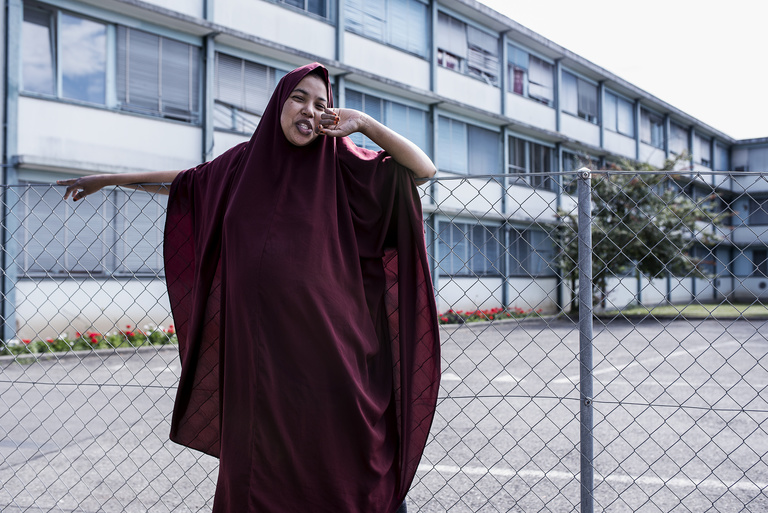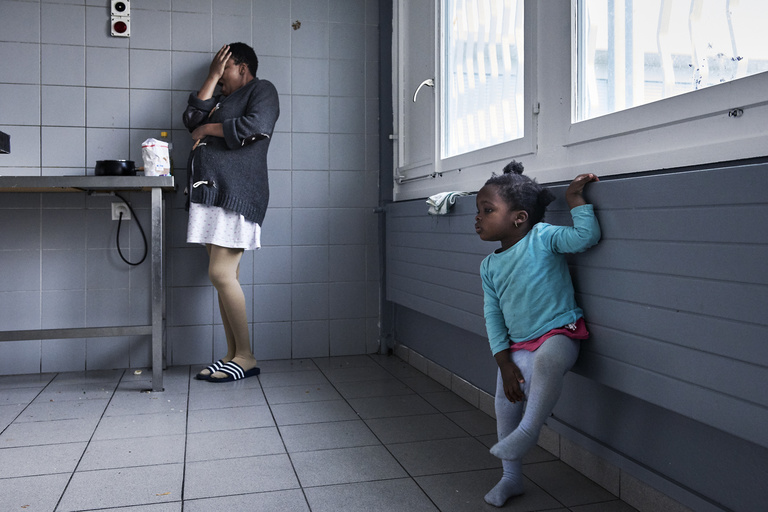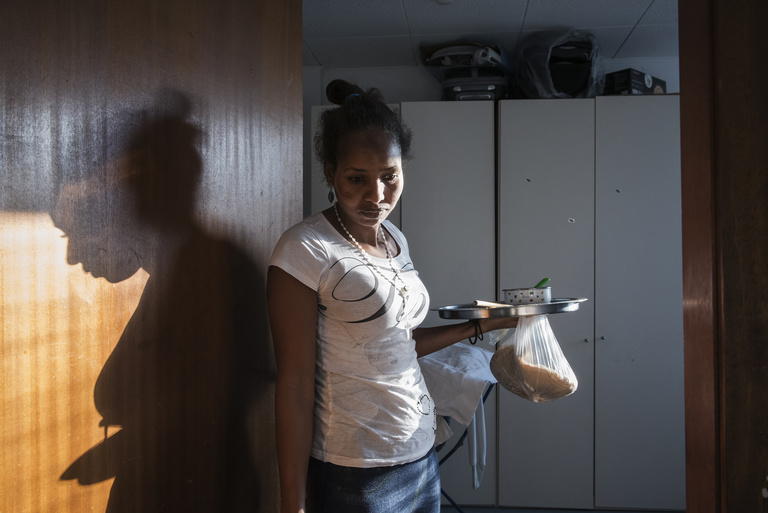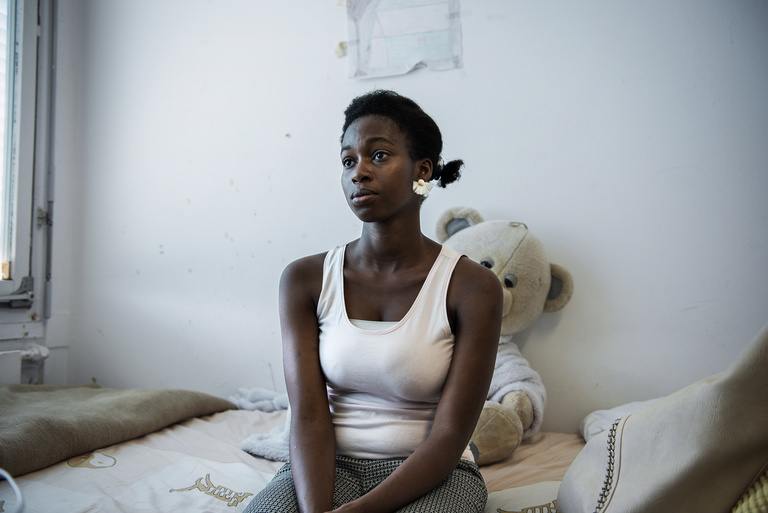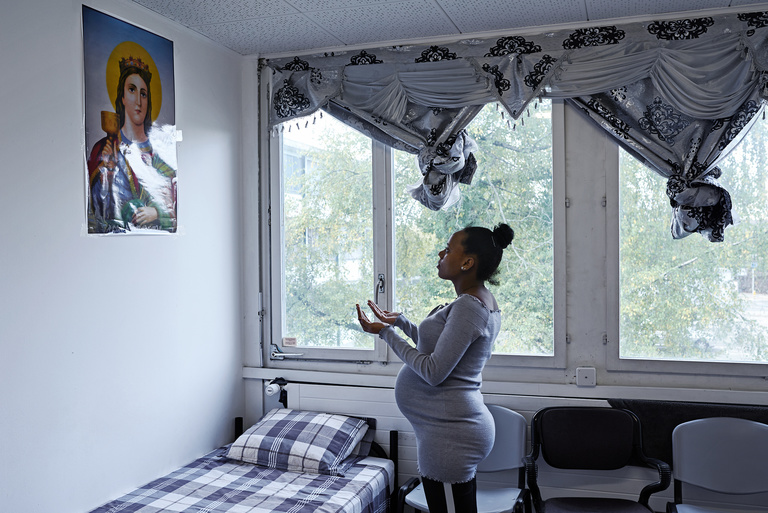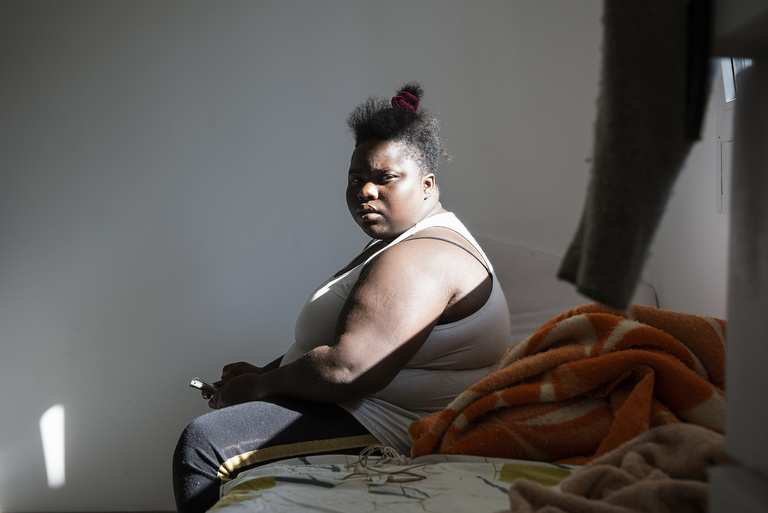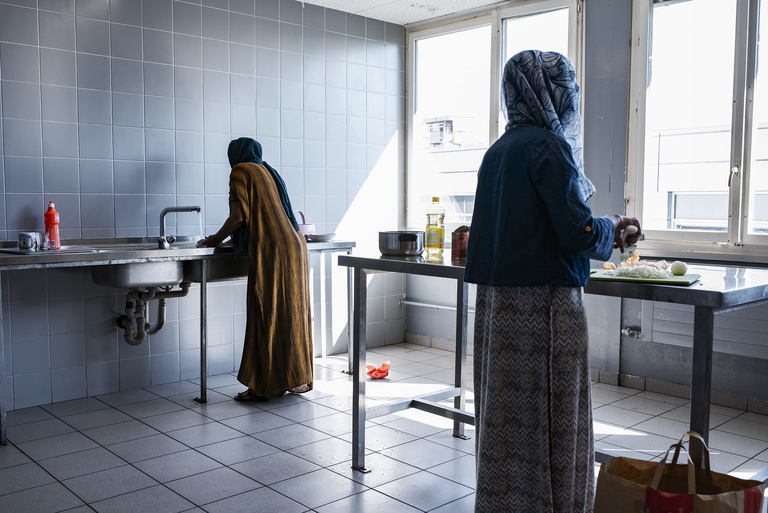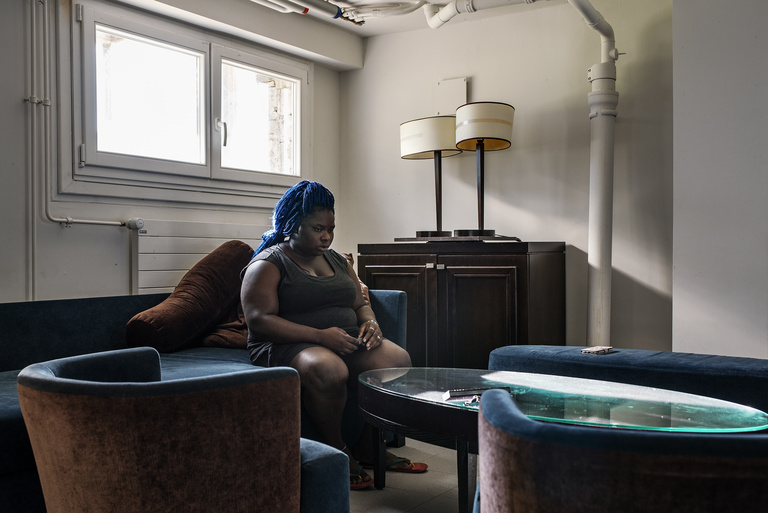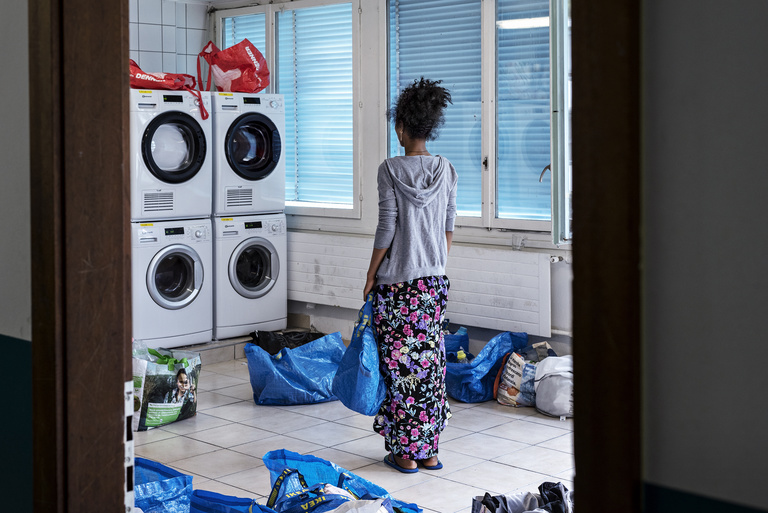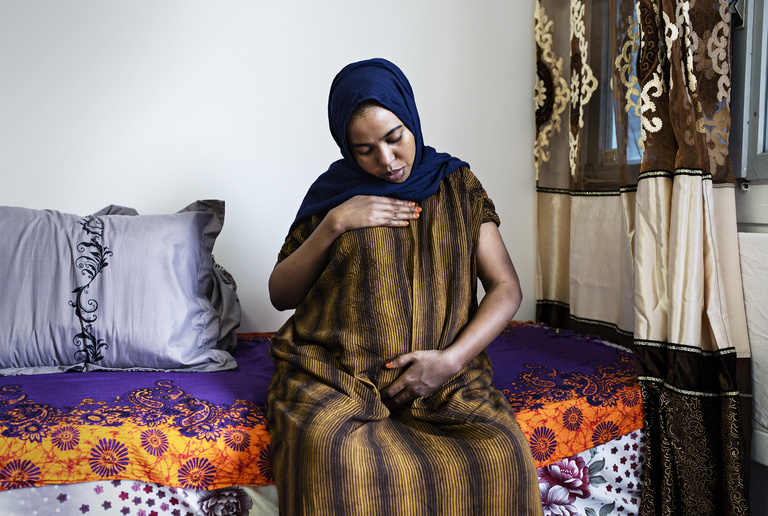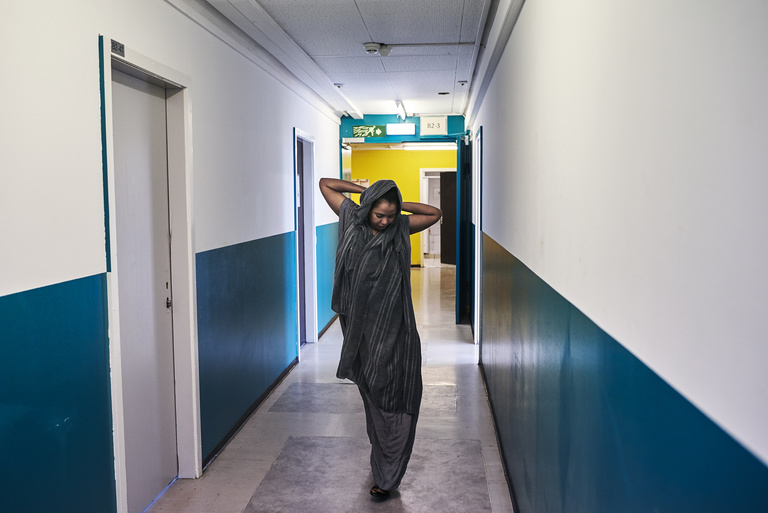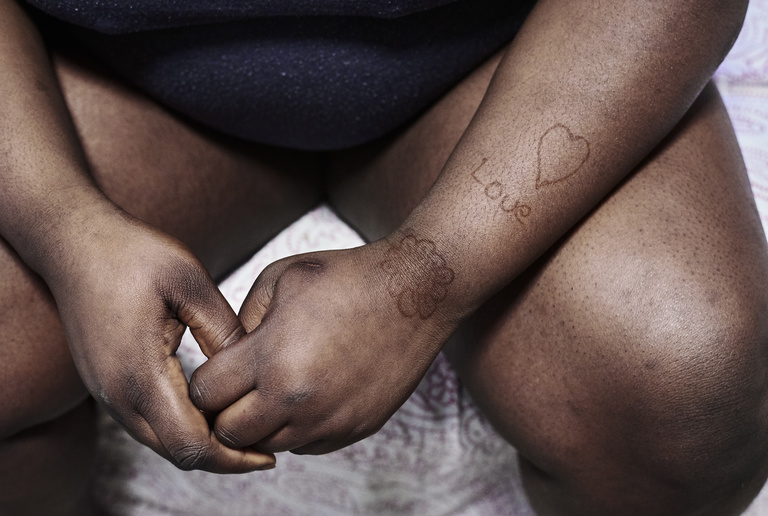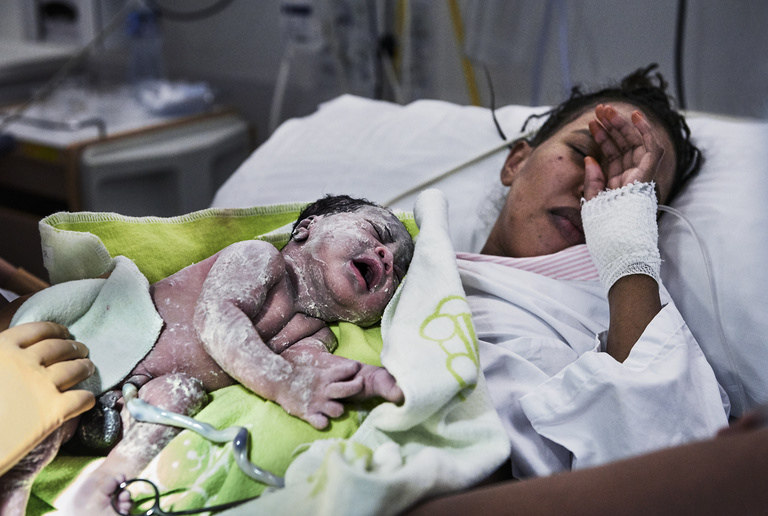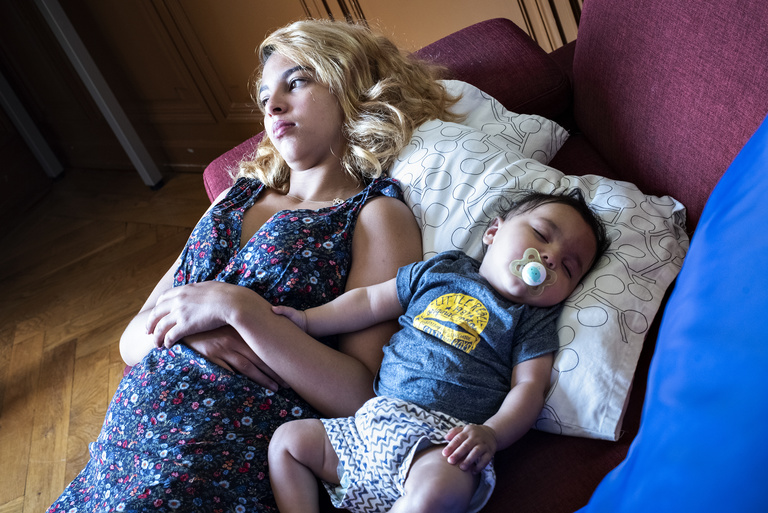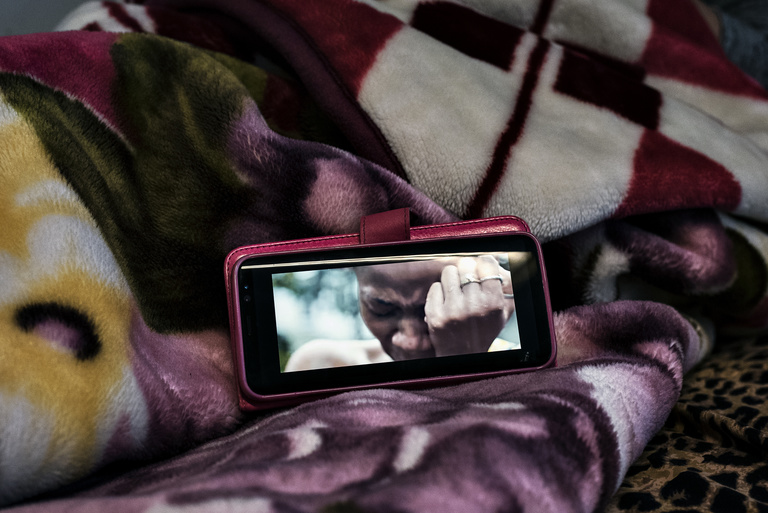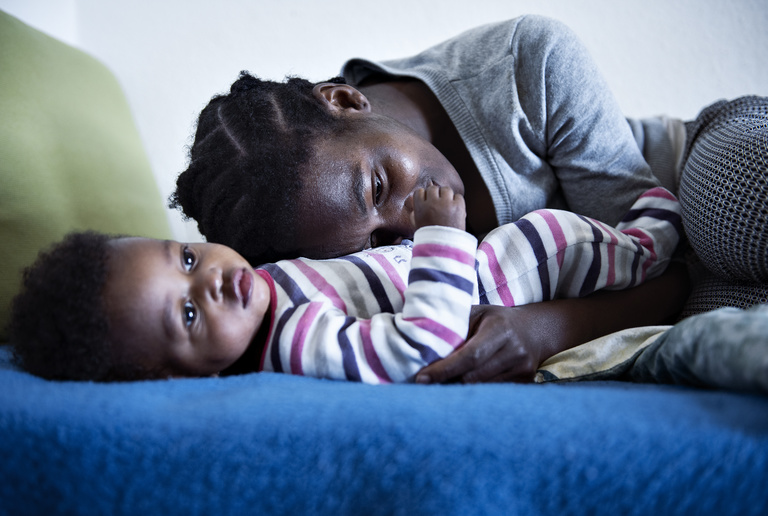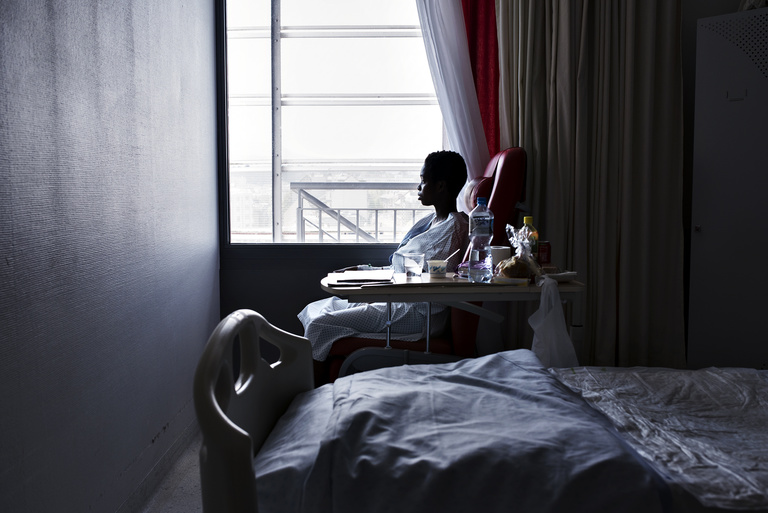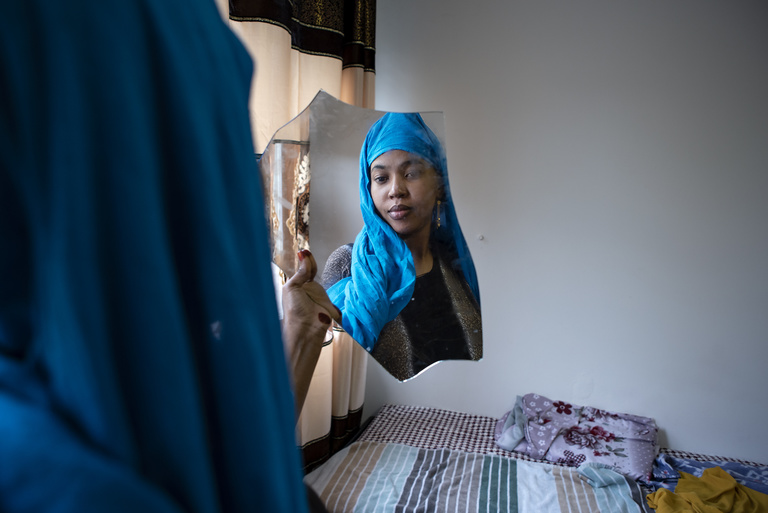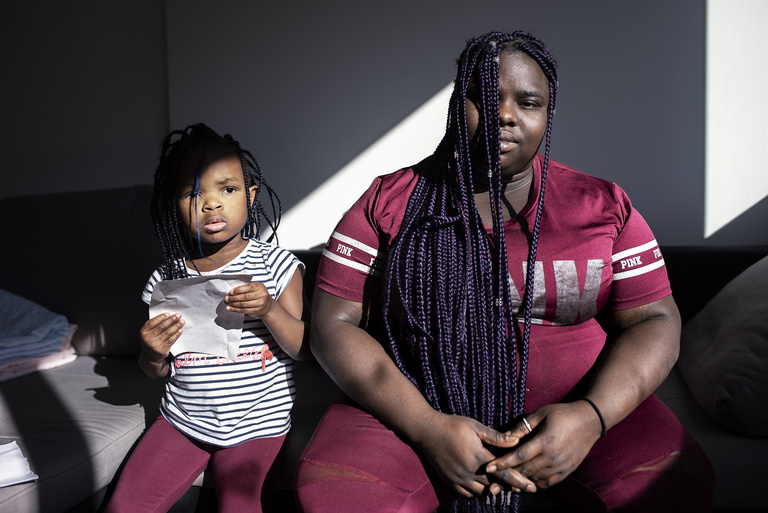They are called Mary, Shariffa or Ubah. From their common points, Sylvie Léget made their common features the subject of a committed and poignant work. These women have all left their country of origin to flee different forms of violence. All of them gave birth during this unavoidable exile.
Giving Birth in Exile, initiated in 2016, was born in the midst of a migration crisis that was shaking Europe. Among the many works on the subject, it stands out through a sensitive and unique approach. By sharing moments of extreme intimacy, the birth of a child, the advent of the status of mother, Sylvie Léget approaches the problem of migration from the most human angle. Like the path to exile, motherhood is a passage, a radical change from one state to another. By accompanying these women in this double transition, the photographer engenders a metaphor of the crossing to an unknown and upsetting world.
Driven by a strong desire to transmit, Sylvie Léget confronts us with chaotic life paths through the representation of a raw reality. Under her gaze, broken lives are slowly mended. In her photographs, motherhood, a universal value, is embodied in both doubts and certainties. In the background, a deep feeling unites these women: their loneliness is a tremendous burden, inherent to those who give birth in exile. Paradoxically, each moment of fragility that they reveal is more proof of the strength that drives them. They are fighters, lionesses. Giving Birth in Exile asserts it firmly against all prejudices. This series crosses the lines of intimacy to feature individuals too often treated as an indistinct mass and classified under the commonplace of "migrants".
The story told here is above all a story of women. Their gender determined for each of them a destiny punctuated by violence, exile and loneliness. If the author decided on this entry point for her photographic work, it was to echo the overall experience of all mothers, including her own. Intuitive and emphatic, Sylvie Léget's approach carries with it an element of feminism, a desire to go against misery-oriented stereotypes. It is a tribute to these women, these mothers, our sisters, a symbol of resilience.
All crossed the river …
« There is a very colorful Khmer expression for the act of giving birth: crossing the river. It is true that a woman faces many dangers during this crossing. She can even rub shoulders with death. Depending on the state of the river, some will enjoy a peaceful trip. For others, the journey will be more perilous. The woman who reaches the other shore is rewarded: she has become a mother, an enviable situation, and will be proud to have successfully endured the trials of this rite of passage. »
Lise Bartoli, Venir au monde, éditions Payot & Rivages
Audrey Hoareau, curator
